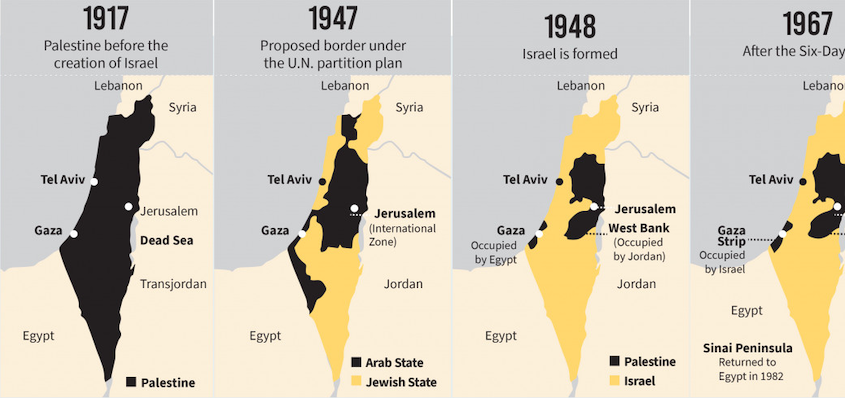
The statement on the UN Partition of Palestine by the Arab Higher Committee is a reminder of the sordid history of the U.S. in the expropriation of land and the attempted ethnic cleansing of the people of Palestine.
Ceasefires of unceasing fire. Resolutions without resolve. Not for the first time, the US actions in the United Nations (UN) have exposed the wretched ineffectiveness of that international entity when it comes to defending the lives and rights of the Palestinian people. Just over a week ago, the United States refused to support the UN Security Council’s (UNSC) otherwise-unanimous vote for a temporary halt to the genocide in Gaza. For the first time, the US abstained from the ceasefire vote, instead of vetoing it outright, but quickly called the UN’s resolution “non-binding” – and, effectively, pointless. The blood-soaked palm of Linda Thomas Greenfield, again, signified the imperial and impetuous American abstention; the US greenlighting of a new $2.5bn weapons package to the zionist entity in the days after the UNSC vote cynically demonstrated that their real commitment is to genocide.
For Palestine, this is nothing new. The US has repeatedly refused to use the UN stage to censure the actions of the zionist entity against Palestine. And in fact, almost since the formation of the UN in 1945, the organization has repeatedly betrayed the Palestinian people as the US has either bought or bullied UN member states into supporting the zionists. Indeed, the 1948 UN vote that endorsed the partition of Palestine was less an exercise in international democracy than a performance of corruption, coercion, and intimidation by the US superpower over smaller, weaker states.
This history of bullying and brow-beating is described in detail in a February, 6, 1948 statement sent by Isa Nakhleh, Representative of the Arab Higher Committee, to the UN Palestine Commission following the vote in favor of partition. In the statement, Nakhleh asserts that “The Arab Higher Committee maintains that the partition recommendation does not represent the sentiments of the United Nations.” He accuses the US of strong-arming other UN members into voting for partition, writing, “The pressure put by the United States Delegation and Government on certain nations, whether at Lake Success
[in Long Island, site of the original UN headquarters]
or in these nations’ capitals, is nothing short of political blackmail.”
Of the examples of this political blackmail that Nakleh documents, two are particularly painful for us: that of Liberia, and that of Haiti. Both countries followed the US lead when it came to voting for partition, making both countries complicit in the inevitable decades of slaughter emboldened and enabled by the UN decision. Naklheh asserts that Liberia was going to vote against partition. However, the Liberian delegate, Ellen Scarborough, changed her vote after she was threatened with physical violence, prompting her to ask for police protection.
As for Haiti, it is worth reading Nakhleh’s comments in full:
The delegate of Haiti on Wednesday made a very strong speech against partition, on instructions from his Government. On Saturday he circulated a note to Delegations explaining that he is voting for partition in accordance with fresh instructions from his Government. The Haitian Delegate did not find words to describe his shame and he was seen in tears in the lobby and Delegates’ lounge. Being a sincere and noble man, he could not hide the fact that his Government surrendered to pressure and was forced into changing its instructions to him.
At the time, Haiti’s president was the progressive Dumarsais Estimé. Haiti’s delegate to the United Nations was Ernest Chauvet, the mulatto editor, as Cedric Dover described him, of Le Nouvelliste, who had been jailed during the US occupation of Haiti for his criticisms of the occupation’s policies and puppet government. Unsurprisingly, Chauvet denied Nakhleh’s accusations , claiming that Haiti’s entire history was one of standing up against the Great Powers while asserting an identification with the plight of the Jewish people.
Black Agenda Report for more
